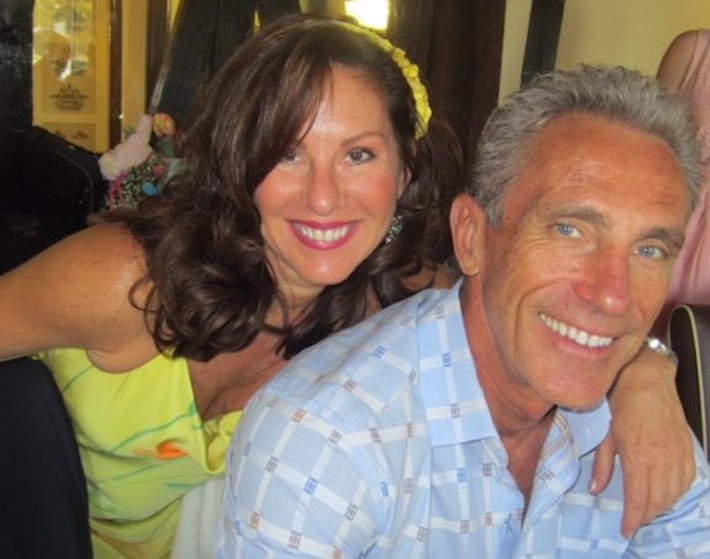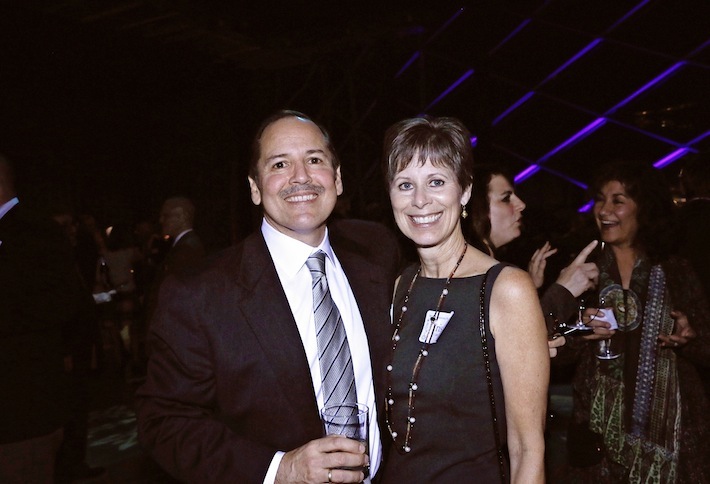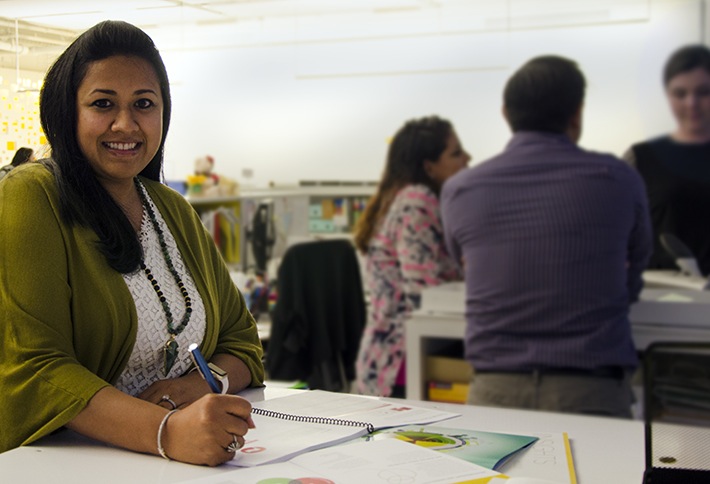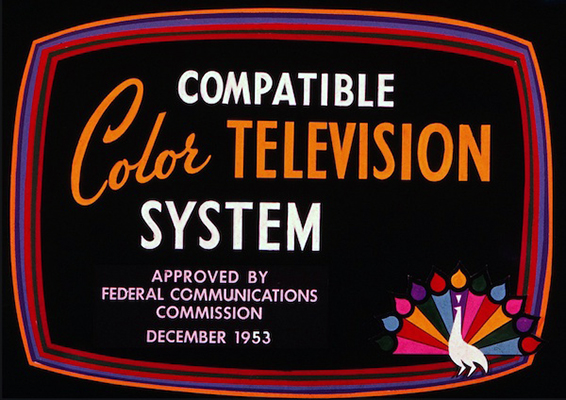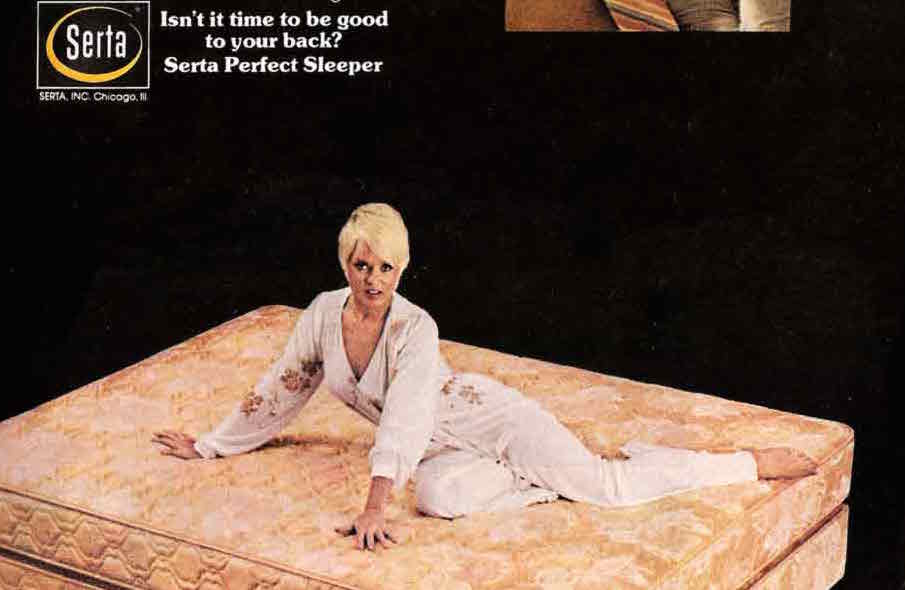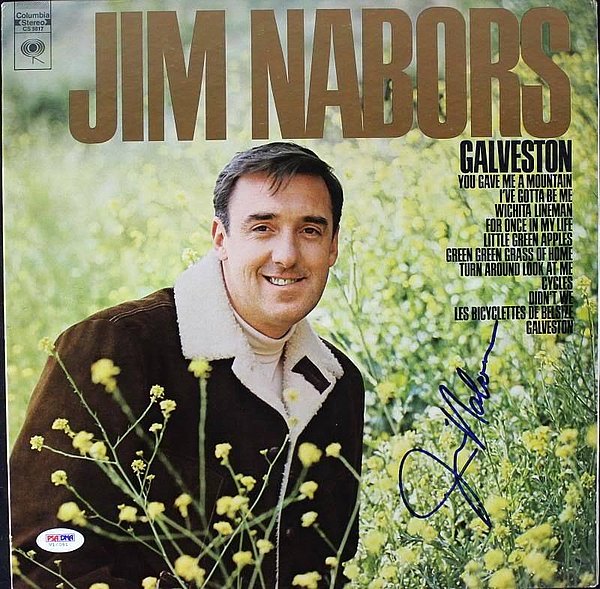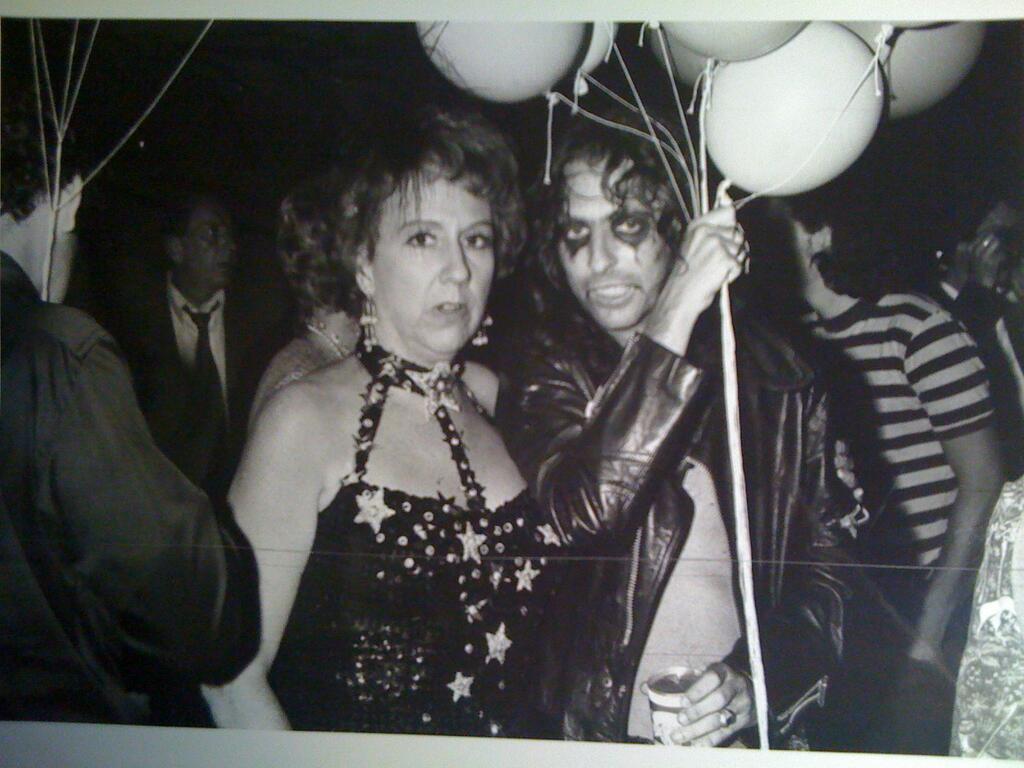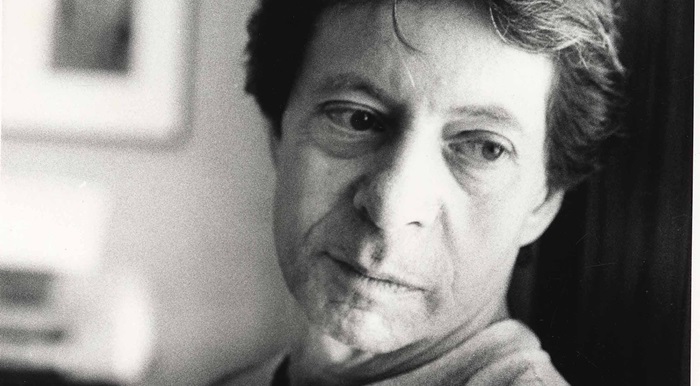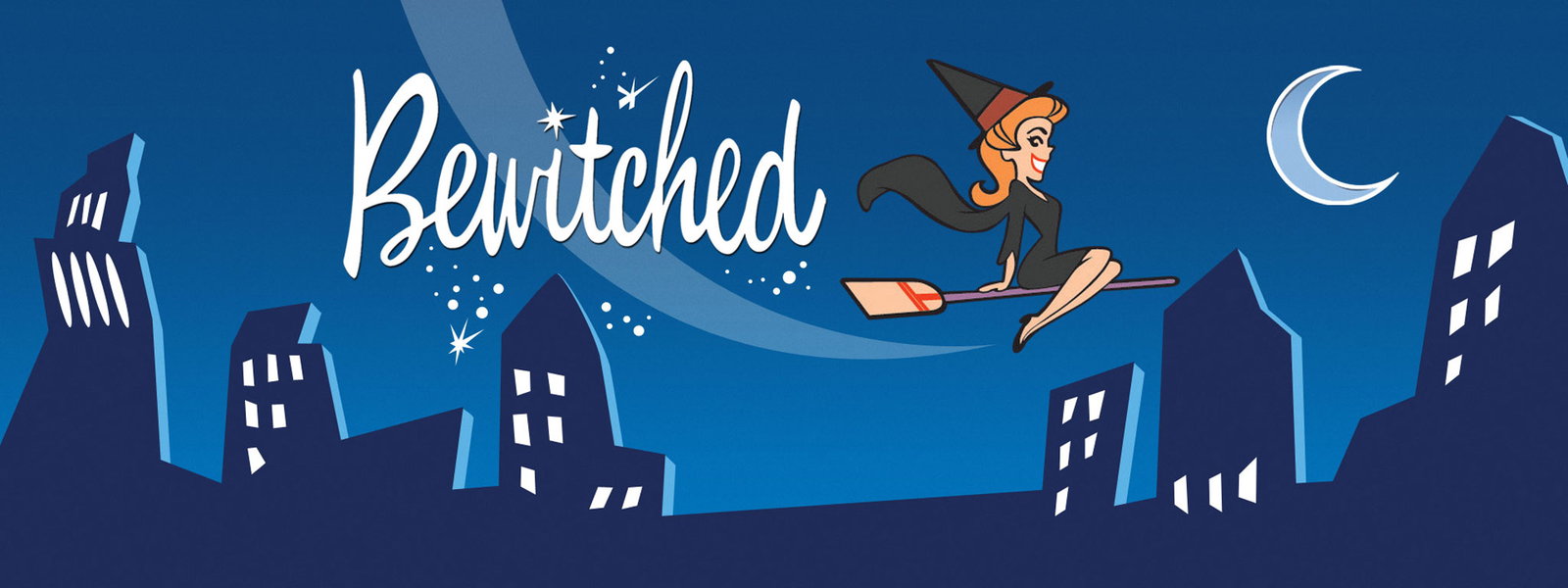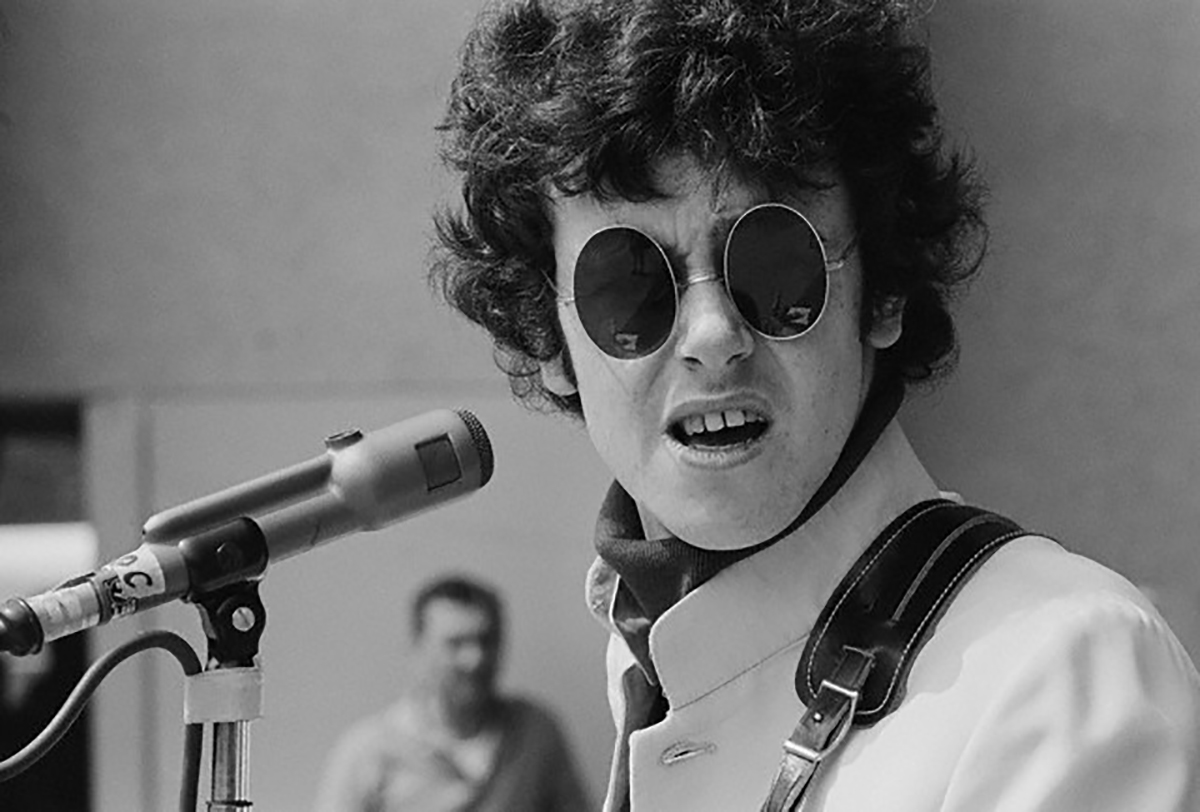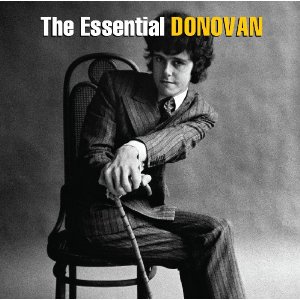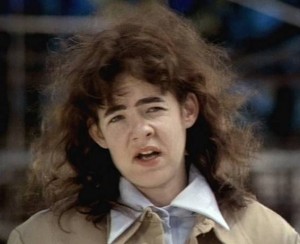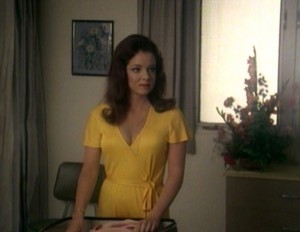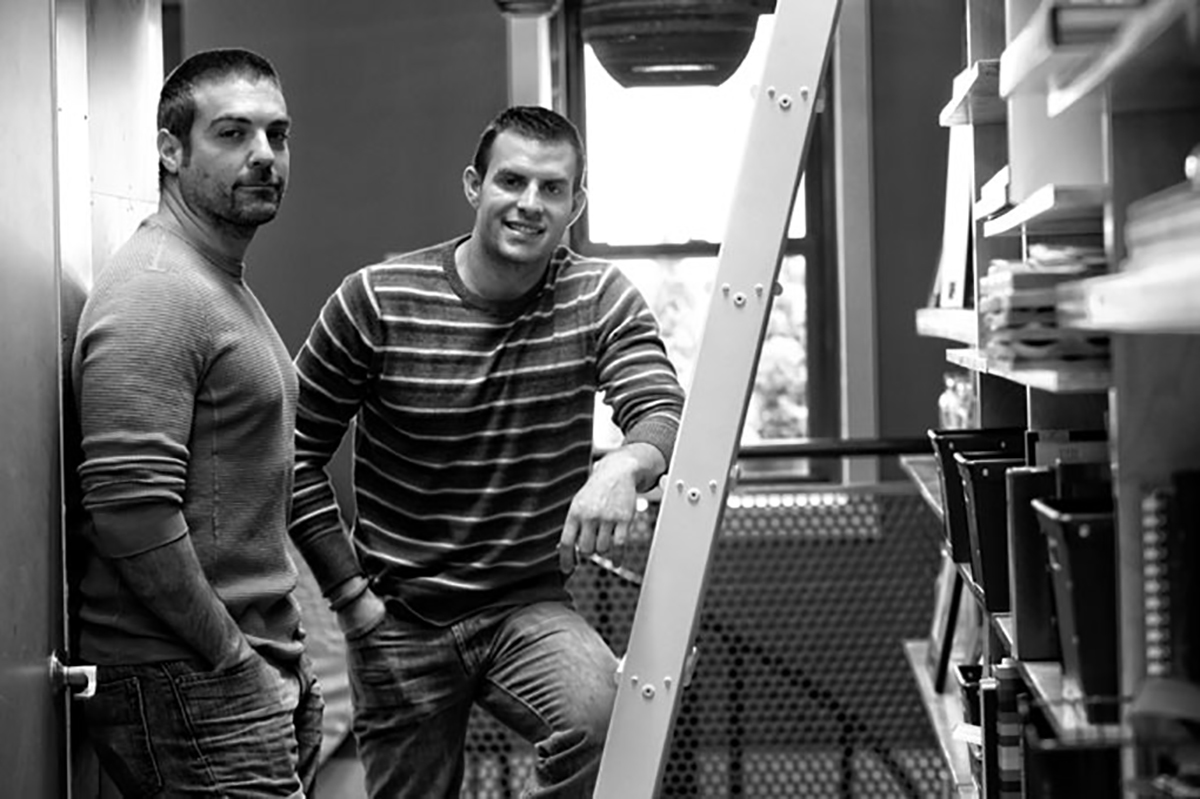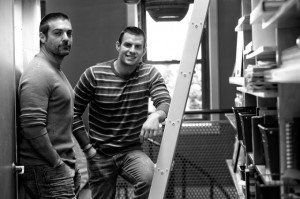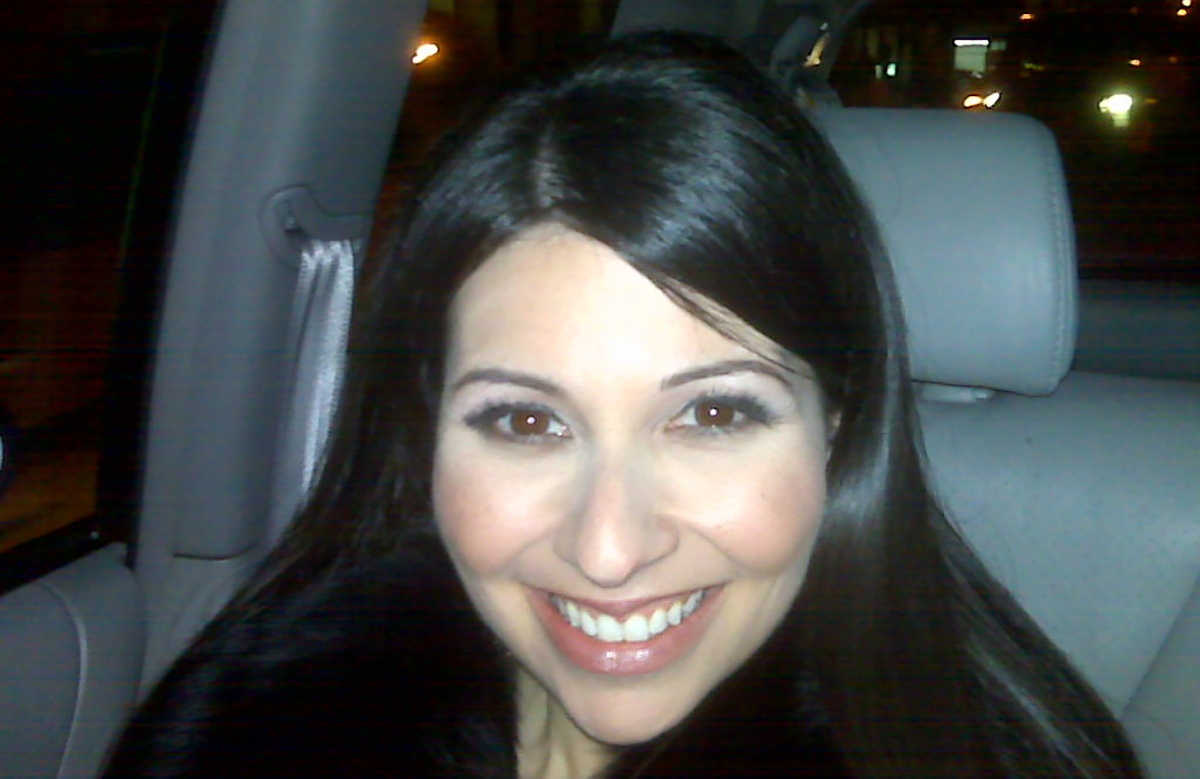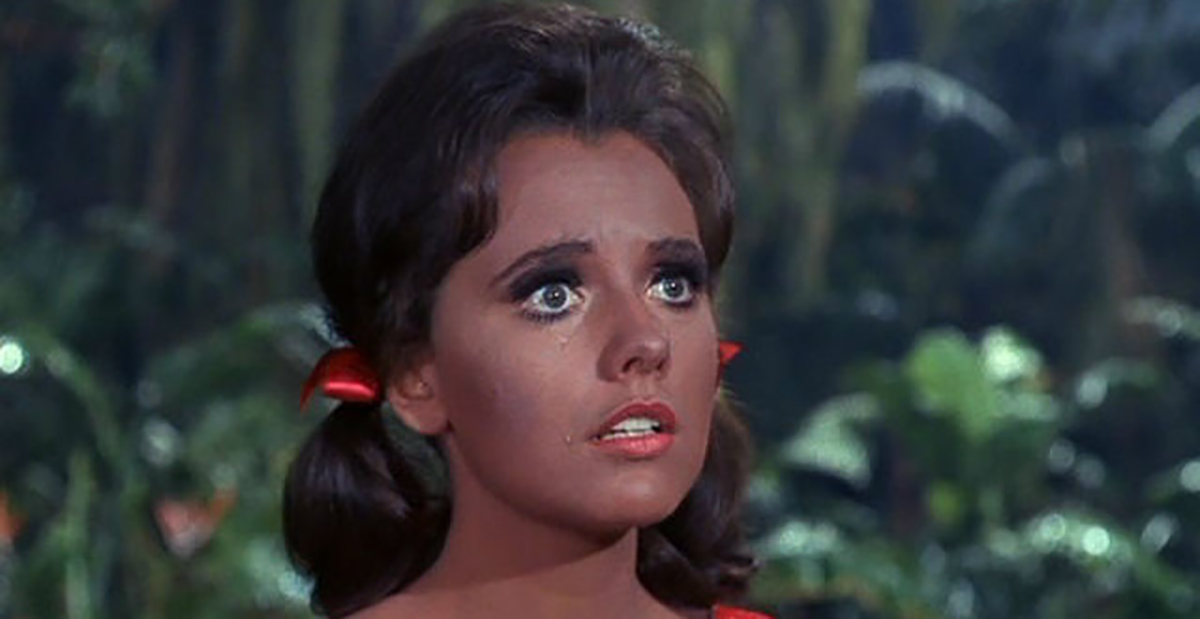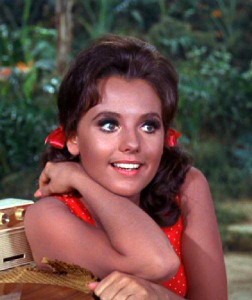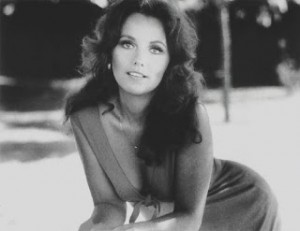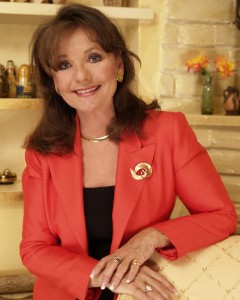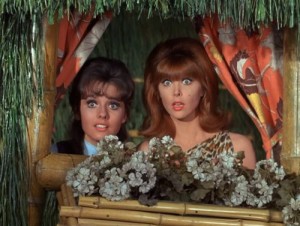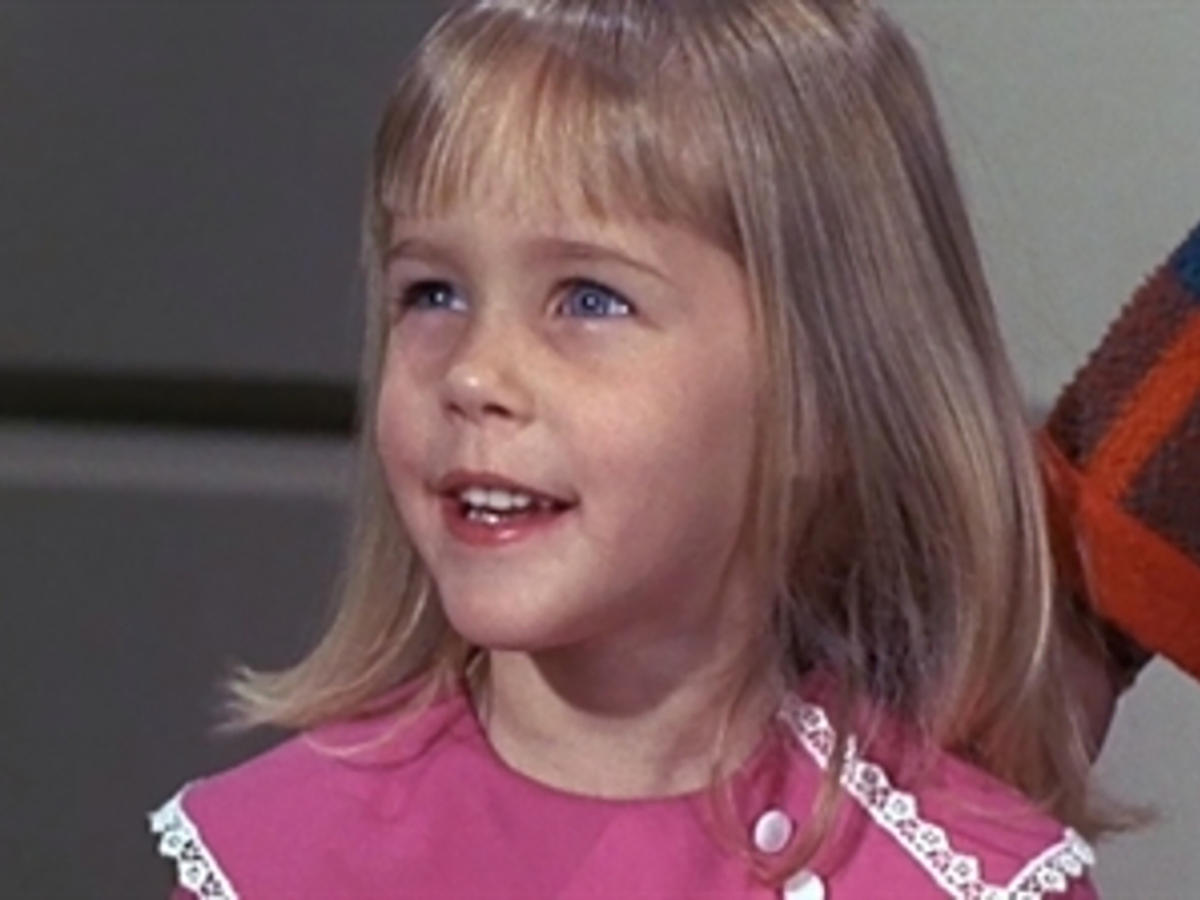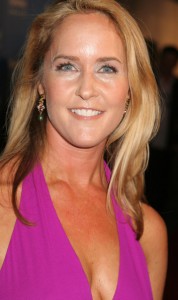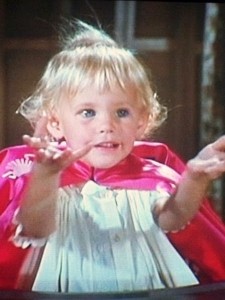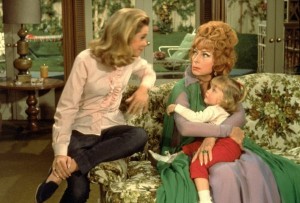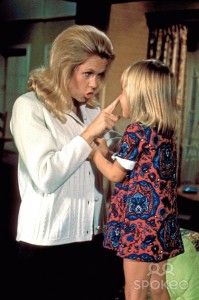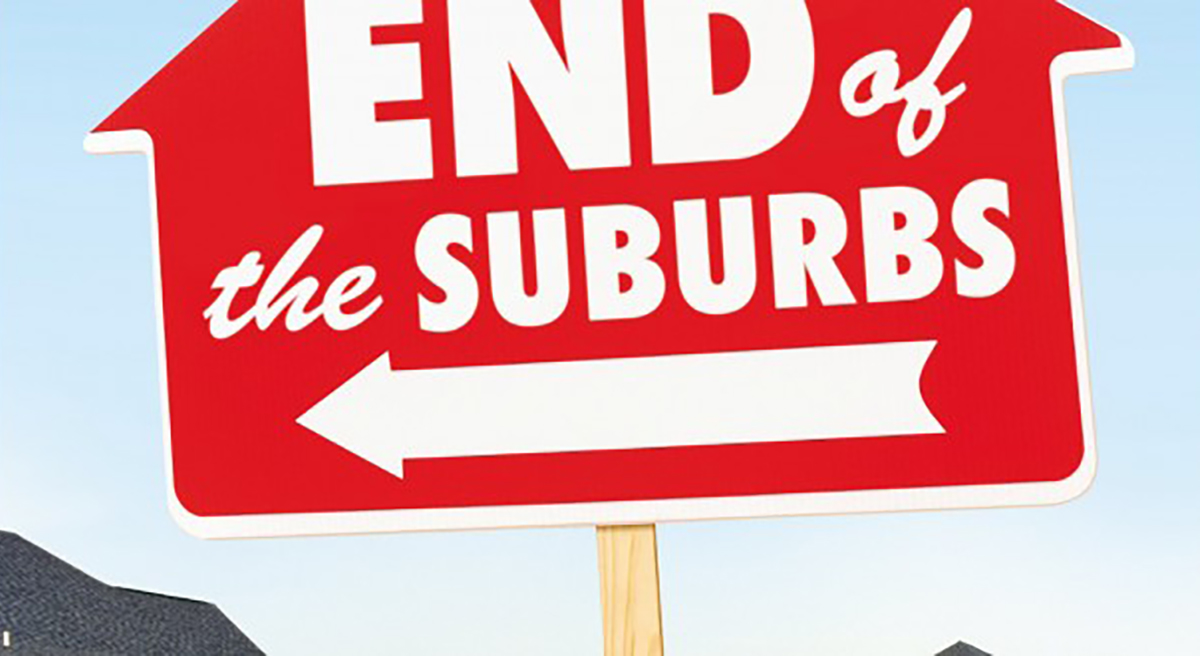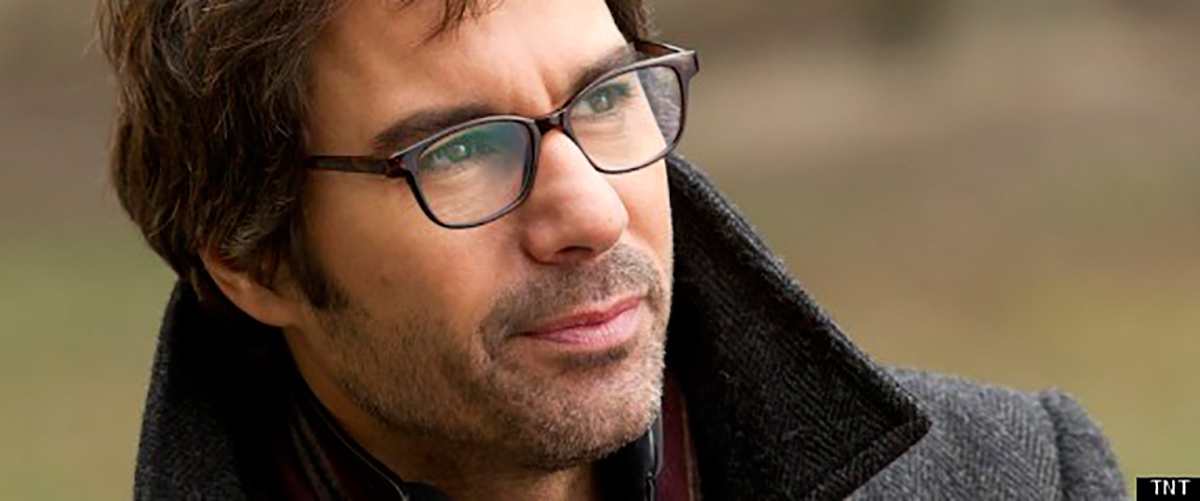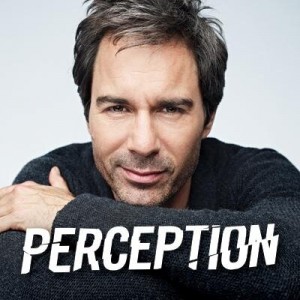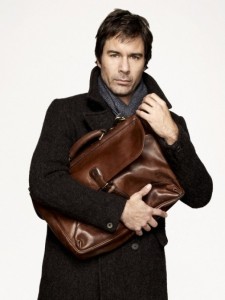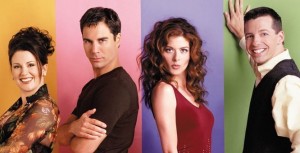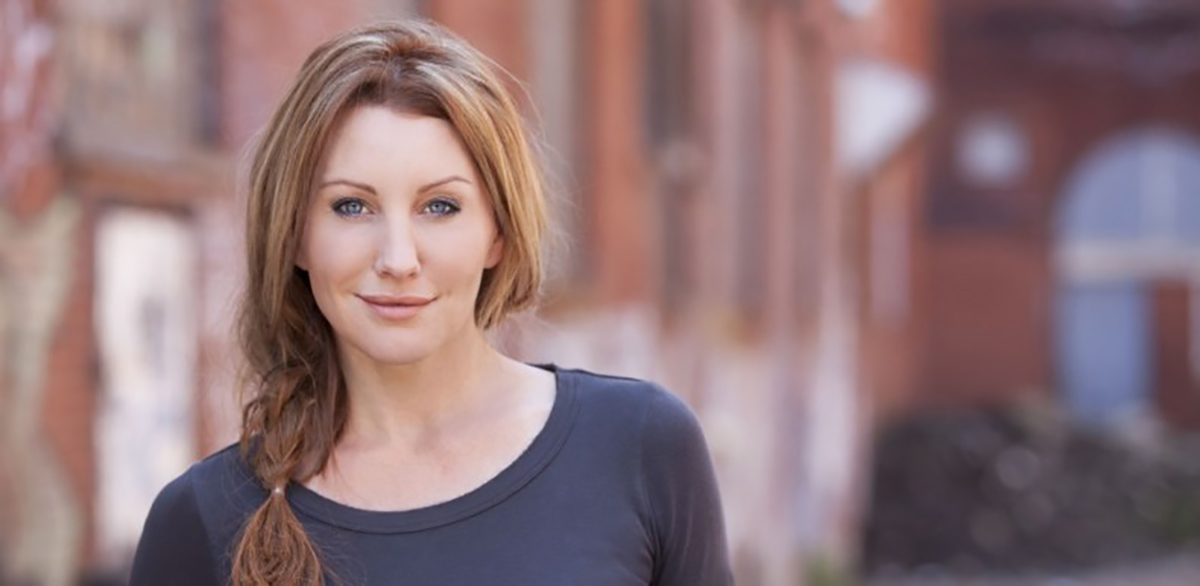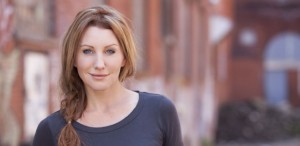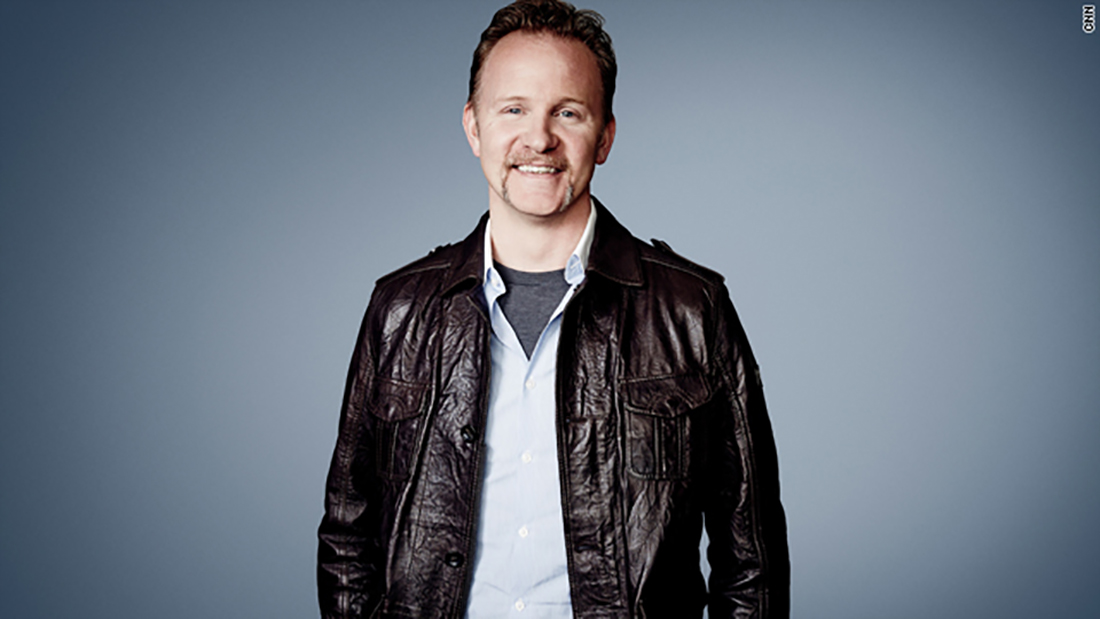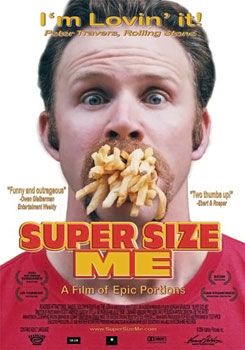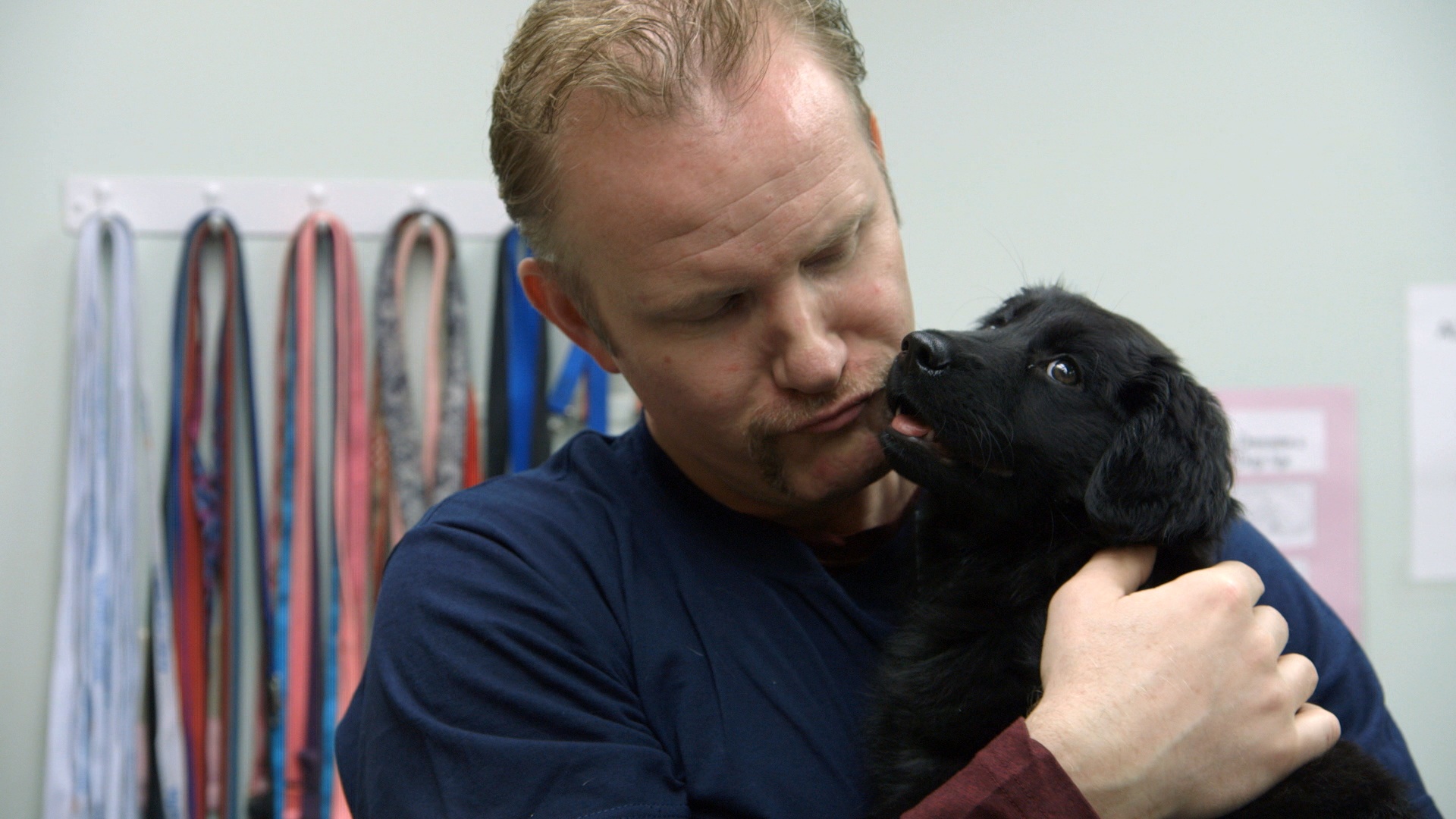Bewitched: The Complete First Season (1964-1965)
Is Samantha Stevens a satanic disciple of The Great Deceiver? Could be: she consistently breaks her promise of “no witchcraft” to Darrin.
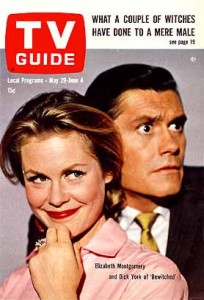
When Bewitched premiered in the fall of 1964, it was so high-concept that during its first few episodes, a narrator explained to us that Samantha was… a witch. This introduction was delivered ironically, informing us that she was supernatural and yet just like us, using favorite Sixties comfort-food buzzwords as “typical suburban housewife” and “All-American girl.”
However, it was the powerful charisma of Elizabeth Montgomery that allowed her to stride the two worlds, and she expertly rode that broom into permanent pop-culture bewitching belovability.
The magic struck an immediate chord: the show was a hit from its very first episode, and was the second-most-watched program on television (after Bonanza). Viewers, increasingly tired of the same old living-room comedies, now had a fresh coat of paint to watch dry. The series’ writers – still bound by pre-All In the Family convention – managed to take it up at least one notch.
That fall, the TV suburbs were dominated by a Martian, a living doll, identical twin cousins, oil-rich hillbillies, two sets of monster families (and a year later, a genie and a talking car). However, it was Samantha Stevens who set the tone for what a supernatural sitcom should be, and the friendly formula would follow for decades (think Charmed and Sabrina The Teenage Witch). That recipe is heavy on the normal and the likable, light on the satanic darkness.
Still, the show is both a shining example and a hapless victim of its genre – every episode ends in a passionate kiss and the swell of a full orchestra, but it also delivers on much deeper levels. Ultimately, though, it’s weighed down by no-no’s.
The plot, as we all know, is infuriating: man marries witch; same man insists that wife refrains from using her natural-born powers so that the couple could live a “normal” life. Ha ha. As a result, we are robbed of some intensely intriguing storylines and amazing possibilities for the sake of sitcom shenanigans. Entire theses have been written on Darrin’s fear of Samantha’s power, and his desire to control it and contain it. This may be, but had Darrin been more curious and more open to play, we would have been left with a far more interesting interesting premise.
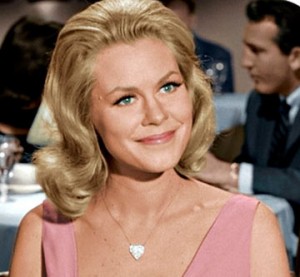
The writing is determined to be moralistic and honorable and given to easy, repeatable conflict: witch gives up her magical life in order to live humbly with the mortal she loves. The writers delight in the fact that Samantha uses her brains – not her nose – to get herself out of sticky situations, some even caused by magic gone awry. We as a nation, however, are affectionate but not always amused. We want to see her conjure herself into a tizzy. Instead, though, what we get is mild trickery: a man gets turned into a dog. George Washington is sitting on the barcolounger. Been there, etc.
Subversion, however, comes in strange forms. Although its never really officially noted, Samantha is rather lax in her promise to refrain from witchcraft. We see her during the day, zapping up a pool in the backyard so she could take a quick dip; we see her snap clean her dirty dishes, magically fold her laundry, and have a quickie lunch with her mother in Paris. This is not the same young wife who takes a vow of non-witchcraft in front of her husband. “Maybe I can taper off,” she resolves to herself in the very first episode, but she never truly does, and we realize that she is ultimately what witches have been accused of for centuries: a deceiver.
In fact, she breaks rules quite recklessly, with little or no remorse. When Darrin pays too much attention to a televised baseball game, Sam creates an impromptu rainstorm, which causes a postponement of the game. Even in the opening credits, an animated Samantha transforms herself into a cat, and then back into herself (a trick that would bring intense disapproval from the “real” Darrin).
She says to her mother, “I promised Darrin no witchcraft, and no witchcraft is what he’s going to get.” This is wholly untrue. Her promise is conditional at best.
Meanwhile, we see Darrin slowly realize that he married into more than he bargained for. He wonders – more often than not – if he can truly trust his new bride. If anything good or bad happens to him, he contemplates uneasily if his good or bad fortune is as a result of witchcraft. He also wonders about his wife’s true age, and ultimately, his own mortality.
We can’t help but feel Darrin’s pain, yet at the same time, we wonder about his ability to deal with his own trust issues. He drowns them in alcohol, which in the Sixties, was seen as cute and funny. In the beginning, witchcraft is a scary and incomprehensible thing. He says to his wife nervously, “You’re telling me you took a live person and turned him into a dog?” However, like anything else, her powers become ordinary and less shocking as the series goes on. By the end of the run, we’ve seen it all before (but we never tire of watching actors get “frozen” in place!).
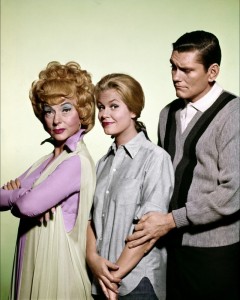
Still, Darrin can’t help but wonder if he was under a spell when he fell in love with Samantha – bewitched, to use the correct term. It’s not entirely unlikely – while Darrin naps, Samantha and Endora literally change his facial features to see if they can improve upon them. This could be the ultimate in ego bruising from which an insecure man may never recover.
We know next to nothing about Darrin (he’s from Missouri and he served in the Army), and we know even less than that about Samantha (we can only guess about her past life, which was long and presumably privileged and colorful). Darrin covers his blurting out that he’s in a mixed marriage by saying, “I’m English and she’s Norwegian.”); similarly, Samantha faces bigotry when contemplating telling the world what she truly is (her aunt advises her: “You’d better take out lots of fire insurance,” referring to witches being burned at the stake). In the spirit of this civil-rights era, the witches contemplate a non-violent march to protest witch-discrimination at Halloween. Sounds a bit cutesy, but this was powerful stuff in its day.
It’s meant to be adorable that Darrin is so in love with his wife that he will put up with a mountain slide of crap, including a literal mother-in-law from Hell. Endora (played with relish by Agnes Moorehead) looks down her nose at “mortals” (called in this first season “humans” and “animals” and eventually toned down to “mortals”).
She barely shows him a smidgeon of respect by constantly effing up his name: Daniel, Durwood, Dumbo, Dobbin, Derek, Darwin. This being the golden age of mother-in-law jokes, the humor was probably more potent during its first run. “Mortals are their own worst enemies,” mother observes about her son-in-law’s creed, but that doesn’t stop her from playing with him like a cat cornering a mouse.
Endora – worldly, bigoted, cranky and potentially dangerous – accuses her daughter of slumming, marrying beneath her (and in a mixed marriage, no less), and giving up a life without boundaries, “trading it all for a quarter-acre of crab grass.” We actually can’t help but see her point, and wonder how much more interesting the show may have been had the writers not worked so hard to take the high road.
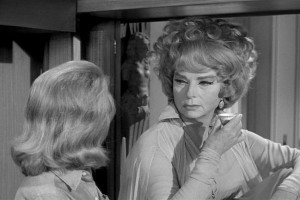
“Mortals don’t seem to know how to do anything too well,” Endora later observes, though she never admits that the playing field is not level.
One of this first season’s many highlights is a visit from Samantha’s drama-queen father, played by the Shakespearian actor Maurice Evans. He and Endora were television’s first separated couple, yet when they get together you’re watching heavy acting at its finest. ”Maurice, control yourself,” Endora purrs like the first lady of the American theater, as her estranged (and strange) husband telepathically shatters glass when he learns that his daughter married a mortal.
The original desperate housewife, Gladys Kravitz (played in the first two seasons by the Don-Knotts-like Alice Pearce), is another tragic figure. We laugh at her mistakenly witnessing Samantha’s witchcraft and miserably failing to prove it to her hapless husband and to the world, but she knows, she sees.
“Abner,” Mrs. Kravitz screams after spying a cat transform into a sexy lady, “there’s a woman in a fur coat lapping up the milk!”
Her husband, Abner (underplayed brilliantly by George Tobias), is at the ready with her “medicine,” which must be a form of liquid heroin, and is supposed to keep her tranquilized. Gladys knows what she sees, but the devil never gets his due.
Abner longs to spend his retirement reading the newspaper and practicing the flute (and why does he sit around the house in a shirt and tie?). We wait for Abner to actually see what he needs to see so that all of us can get some closure, but instead, like on all sitcoms, we are trained to expect the expected.
“Your kitchen is so uncluttered and its after six,” Mrs. Kravitz notices nervously of Samantha’s housewifery, sniffing for clues about this mysterious new neighbor, and in every single case – with no exception — getting an eyeful of evil.
The series takes place in the heart of Sixties suburbia, which, in and of itself was a new, magical and strange place for many Americans at the time (the series’ original title was The Witch of Westport). Sam is adjusting to Morning Glory Circle almost the same way millions of housewives were adjusting to their split-levels. In a supermarket, a demonstrator of an electric garage-door opener says to Sam, “How’s that for magic?” “Not bad!” Sam replies, truly impressed.
In an age in which being a hausfrau was status quo, Sam wears the label like a blue ribbon. Her mother complains, “Samantha, you’re acting like a typical suburban housewife!” “Thank you,” Sam replies proudly, actually taking it as a compliment.
Another magical, often-misunderstood aspect of modern life is advertising, and although we are told that Darrin is an account executive for McMann and Tate, we also see him writing copy, creating illustrations and generating quaint ideas that wouldn’t rate as a passable ad for Penny Saver. It’s the real Mad Men: TV characters are drinking hard liquor in the office in the middle of the afternoon.
Is Darrin the creative genius we are constantly being told he is? Take the Pepsi Challenge: a poster for a dress company goes like this: “He’d Like To Hold Your Hand When You’re Wearing A Dress From…” (based on the biggest hit of that year, The Beatles’ “I Want To Hold Your Hand,” but how would we really know that now?). This is a world filled with old white men, but with no CEOs or marketing directors: all clients are from family-run businesses. For instance, Castor Soup Company is actually run by Mr. Castor, and so on.
Says boss Larry Tate about one client: “He goes through ad agencies like women go through new dresses.” On a second look at Larry, we find that he is deliciously amoral (anything for the sake of winning a client – “I’ll buy that,” he says of Darrin’s latest idea, “until you think of something better.”). At the beginning of the series only, Larry is painted as an adulterer, making unwholesome moves on women while faithful wife Louise waits at home. We also get a glimpse into his psyche when he confides in Darrin about his seven years in analysis: “When the doctor told me not to come back because I was cured, I felt rejected.”
Before the show was an instant hit and brought in millions of dollars for its struggling network, execs were at first nervous that the series would suggest that Samantha and her family were Satanists (at least one reference to Lucifer and Beelzebub are mentioned in this first season, but never again). Sam, however, is careful to celebrate Christmas and to perform mitzvahs (she helps orphans and misunderstood children); everything Jesus would do. We should probably not pay too much attention when she tells us that her birthday is 6/6.
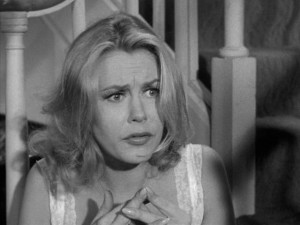
The series’ first season deals brilliantly with sensitive subjects: mortality, bigotry, and infidelity. Not bad, considering that the show was essentially working with network constraints and limited to the most vanilla of situations. Still, it’s TV Land: men feel free to punch each other in the face when the spirit moves them, and couples drink like fish (even Louise Tate, who is pregnant, yearns for and gets a stiff drink).
The situations can get surprisingly sexual, although its Morse-coded to us. For a short stay, the house next door is occupied by the stunning Pleasure O’ Riley, who puts Darrin to the fidelity test. Only a few episodes later, her even-more-stunning sister, Danger O’ Riley, moves in as well, and plays with Darrin’s resolve, to Endora’s delight. These babes cannot hold a candle up to Samantha, who says, “Hello, Danger,” to the neighbor as if it means more than just a mere greeting. Sam is unflappable.
In addition to sex, we get politics (but only as far as stumping for a city councilman, which is safe enough, and tiresome too. Also, she exercises her civic duty by campaigning for a traffic light on Morning Glory Circle, thereby letting us know she’s a good witch).
Elizabeth Montgomery owns the role and the series from Scene One. With her cat-that-ate-the-canary smile, she effortlessly commands, steers and navigates, totally in charge. She is not afraid of what is unknown to us, the way everybody else is, so she puts us at ease.
We also get Paul Lynde in a pre-Uncle-Arthur role (he plays a loser driving instructor), but the seeds are already planted (Sam: “Would you like to join me in a cup of coffee?” His response: “Do you think we could both fit?”). Sam’s relatives keep coming – mostly uninvited, and the only one Darrin seems to have tolerance for is the ancient, bumbling Aunt Clara (played by Marion Lorne, and you either love her or hate her, but try loving her.).
This DVD is colorized for your protection and/or your outrage. You are being pandered to because you are not sophisticated enough to appreciate the art in its original, black-and-white form. About two decades previous, colorization was a major sore spot for true video affectionados and other hopeless nerds. However, the computerized color here is so vibrant and the lighting so subtle and amazing that you can screw the original black and white. You do get a choice, but watch it this way, for more magic.
